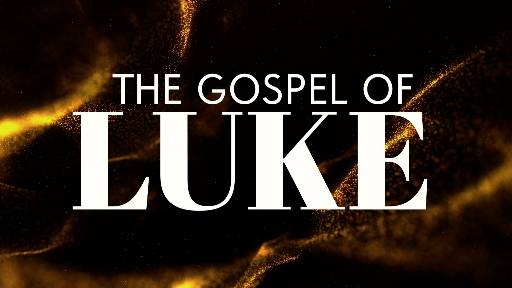-
Why Did Jesus Receive Those People?
Contributed by Bryan Beverly on Nov 28, 2017 (message contributor)
Summary: This message uses the three parables on lostness to remind us that regardless of the reason or degree of being lost, we are still valuable in the eyes of God.
Now all the tax collectors and sinners were coming near to listen to him. 2And the Pharisees and the scribes were grumbling and saying, “This fellow welcomes sinners and eats with them.” 3So he told them this parable: 4“Which one of you, having a hundred sheep and losing one of them, does not leave the ninety-nine in the wilderness and go after the one that is lost until he finds it? 5When he has found it, he lays it on his shoulders and rejoices. 6And when he comes home, he calls together his friends and neighbors, saying to them, ‘Rejoice with me, for I have found my sheep that was lost.’ 7Just so, I tell you, there will be more joy in heaven over one sinner who repents than over ninety-nine righteous persons who need no repentance. 8“Or what woman having ten silver coins, if she loses one of them, does not light a lamp, sweep the house, and search carefully until she finds it? 9When she has found it, she calls together her friends and neighbors, saying, ‘Rejoice with me, for I have found the coin that I had lost.’ 10Just so, I tell you, there is joy in the presence of the angels of God over one sinner who repents.” 11Then Jesus said, “There was a man who had two sons. 12The younger of them said to his father, ‘Father, give me the share of the property that will belong to me.’ So he divided his property between them. 13A few days later the younger son gathered all he had and traveled to a distant country, and there he squandered his property in dissolute living. 14When he had spent everything, a severe famine took place throughout that country, and he began to be in need. 15So he went and hired himself out to one of the citizens of that country, who sent him to his fields to feed the pigs. 16He would gladly have filled himself with the pods that the pigs were eating; and no one gave him anything.17But when he came to himself he said, ‘How many of my father’s hired hands have bread enough and to spare, but here I am dying of hunger!18I will get up and go to my father, and I will say to him, “Father, I have sinned against heaven and before you; 19I am no longer worthy to be called your son; treat me like one of your hired hands.”’ 20So he set off and went to his father. But while he was still far off, his father saw him and was filled with compassion; he ran and put his arms around him and kissed him. 21Then the son said to him, ‘Father, I have sinned against heaven and before you; I am no longer worthy to be called your son.’ 22But the father said to his slaves, ‘Quickly, bring out a robe—the best one—and put it on him; put a ring on his finger and sandals on his feet. 23And get the fatted calf and kill it, and let us eat and celebrate;24for this son of mine was dead and is alive again; he was lost and is found!’ And they began to celebrate (Luke 15:1-24).
Today’s text finds us on a teaching tour with Jesus Christ. In the events recorded in chapter 14, verse 25, we see Jesus speaking to the crowd traveling with Him about the cost of being a disciple. Chapter 15 tells us that the tax collectors (usually Jewish males whose profession was collecting taxes for the Roman government) and the sinners (anyone who was not a Pharisee, Sadducee, scribe, priest, etc.) were gathering around Jesus to hear Him. The Pharisees and the law teachers grumbled that Jesus welcomed these miscreants. Jesus replied to this complaint by sharing three parables (an earthly story with a heavenly meaning). The central theme was ‘lostness’; a lost sheep, a lost coin and a lost son.
Let’s examine these three parables in two different orders. Let’s first use locus of control, from the least to the most, as the means by which we order this examination. The coin is an inanimate object. It may have a person’s image but it has no capacity to think. It has no ability to make choices. Hence if it was lost, it was because it was not being guarded. The sheep is not an inanimate object, but its intelligence is only slightly better than that of a coin. It is smart enough to eat, sleep and make other sheep – that’s about it. Thus if a sheep is lost, it was because it was not being guided. The son is a living and thinking being, fully capable of making decisions. Therefore, the son was lost because of gross negligence. A lack of guardianship, a breach of guidance and gross self-error – these are the reasons that Jesus received these people. They were not necessarily people of bad intentions – just lost. Not necessarily people of bad character – just not in the right place and not heading in the right direction.

 Sermon Central
Sermon Central



